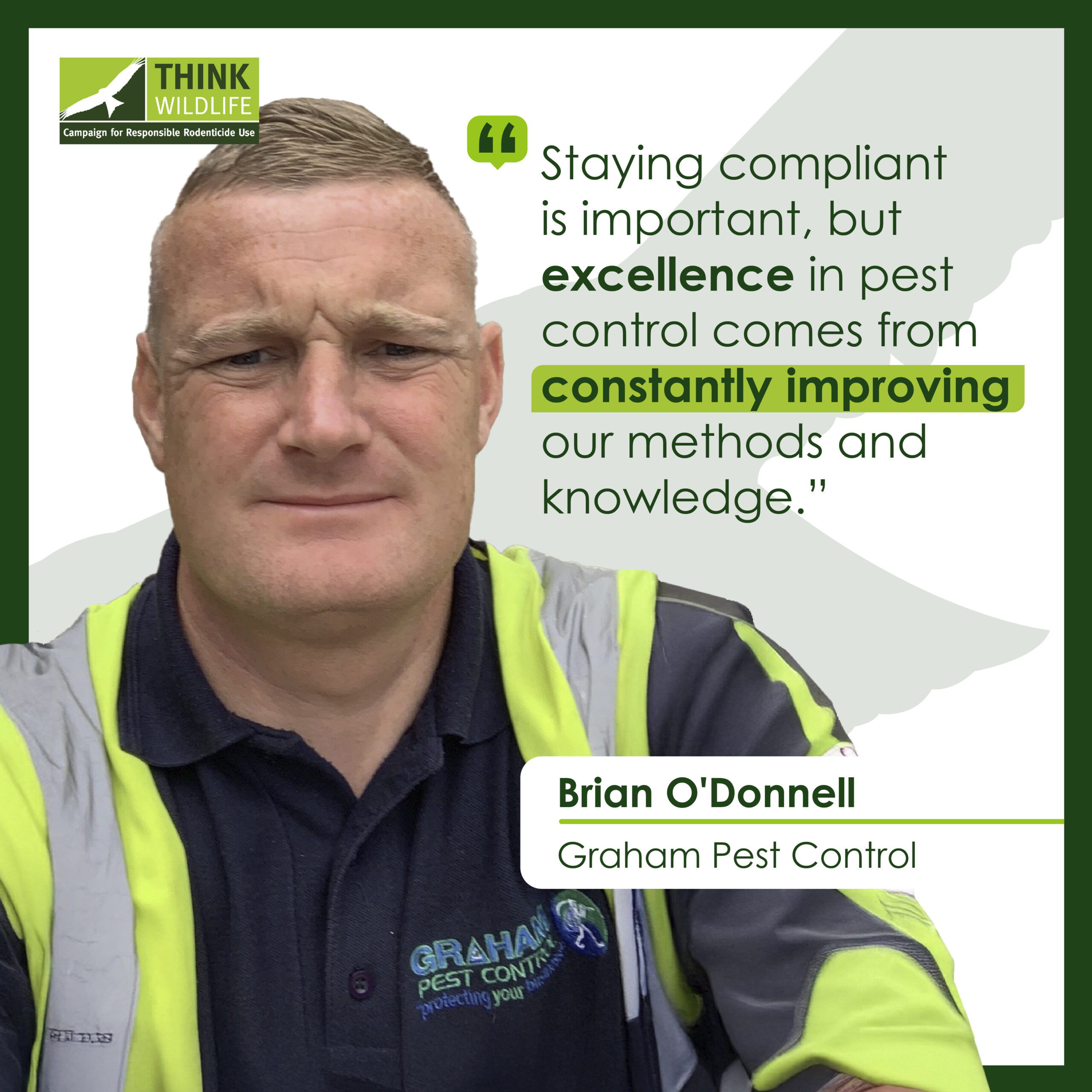04 Apr A Smarter Approach to Rodent Control on Scottish Farms
For over 30 years, Graham Pest Control has been at the forefront of pest management, helping businesses, farms and homes across Scotland tackle rodent infestations. With a strong foothold in agriculture, the team regularly works with farmers to keep their premises rodent-free while following the highest industry standards. Operations Manager Brian O’Donnell shares what goes into responsible pest control on farms, the challenges his team faces and why prevention is always the first step.
“Simply put, farmers want results,” Brian says. “They don’t want a long explanation – they want the rats gone. And that’s fair enough. Rodents don’t just cause damage; they spread disease, contaminate feed, and pose a real risk to public health. But getting rid of them safely and effectively means looking at the whole picture – not just the infestation in front of us, but why it’s happening in the first place.”
CRRU’s Hierarchy of Rodent Control is built around that very principle – prevention before intervention. Instead of going straight to rodenticides, the team at Graham Pest Control starts every job with a full site assessment. “It’s about figuring out how they’re getting in,” Brian explains. “Are there gaps in walls? Open feed stores? Nesting sites nearby? If you don’t cut off access and remove what’s attracting them, they’ll just keep coming back.”
“You wouldn’t just keep bailing out a leaking boat – you’d find the hole and patch it. That’s exactly how we approach rodent control.”
By blocking entry points, securing food storage and improving hygiene, the team can often drastically reduce rodent activity without needing chemical control. But when rodenticides are necessary, they’re applied with precision, following strict label instructions to minimise risks to non-target species like birds of prey and pets.
“There’s no point in using a product if the rats in that area are resistant to it,” Brian adds. “That’s why we send tail samples for testing – it tells us what works and what doesn’t before we even get started.”
Rodenticide resistance is becoming an increasing challenge in some areas, making this extra step essential. “We don’t believe in guesswork,” Brian says. “Resistance is a real issue, so we use the science to back up our decisions.”
This approach is part of a wider shift in the pest control industry towards more sustainable, targeted methods. Rodenticides remain an important tool, but they are only one piece of the puzzle. Techniques such as trapping, proofing, and habitat management all play a role in long-term control.
“It’s not just about putting poison down and hoping for the best,” Brian explains. “We have to be smarter than that. Trapping can work well in some settings, while proofing is very effective at keeping rodents out in the first place. Every site is different, and you need to adapt to what’s in front of you.”
Alongside effectiveness, environmental responsibility is a major priority for Brian and his team. Every job requires an environmental risk assessment to ensure rodenticides are used only when necessary and that no harm comes to non-target wildlife.
“We’ve walked away from jobs where we couldn’t guarantee safe use,” Brian says. “If there’s a risk to birds of prey, farm dogs, or livestock, we won’t take that chance. We’re here to solve problems, not create new ones.”
While pest controllers are at the forefront of responsible rodent management, farmers also have a key role to play. Brian and his team always take the time to discuss long-term solutions with farm workers, explaining how proofing, hygiene, and careful feed storage can reduce the likelihood of reinfestation. “Some farmers still think of rodent control as just putting down bait and waiting,” he says. “But that’s changing. The more they understand about prevention, the better the results are for everyone.”
He’s seen firsthand the shift in attitudes and behaviour within the industry. More and more, pest controllers are prioritising professional development and staying ahead of new regulations and products.
“We’ve seen so much change in the last few years,” Brian explains. “There’s a push towards smarter, more responsible pest control, and that’s a good thing for everyone – farmers, the public, the environment, and the industry as a whole.”
As the pest control sector evolves, sharing knowledge and improving communication are key to continued progress.
“There’s so much great information out there,” Brian says. “The more we talk about what’s working, the more we all improve. “Staying compliant is important, but excellence in pest control comes from constantly improving our methods and knowledge.”
“We’re not just solving infestations in the short term,” Brian concludes. “We’re working to make sure they don’t happen again.”




